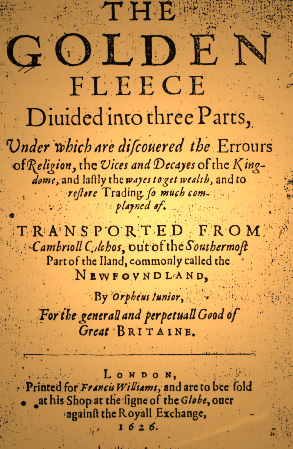

My last post shows how lies and manipulations have the country into a state of ever-growing fear and anger. Unfortunately, without active resistance, the current crisis may go….
From Bad to Worse
To be clear, it certainly makes sense that our core concerns — about vulnerability, injustice, distrust, superiority, and helplessness — should be front-and-center when it comes to thoughtful deliberations about matters of public policy and the common good. Meaningful, far-reaching progressive change requires nothing less. But it’s profoundly destructive — and deeply immoral — when these concerns are instead exploited in a manipulative and disingenuous manner to advance narrow interests that bring harm and suffering to so many. That’s the legacy of Trump’s successful presidential campaign. It’s also a disturbing preview of what we should expect from him and his administration going forward.
At the same time, we shouldn’t mistake Trump’s targeting of these concerns as unique. Indeed, back when he was known as just an ethically impaired real estate mogul and entertainer, other plutocracy-enabling leaders in both major parties were relying on similar psychological mind games: to block climate change initiatives (Senator James Inhofe in 2003: “Could it be that manmade global warming is the greatest hoax ever perpetrated on the American people? It sure sounds like it.”); to justify voter suppression tactics (Texas Governor Greg Abbott in 2006: “In Texas, an epidemic of voter fraud is harming the electoral process.”); to defend discriminatory law enforcement practices (former New York City Mayor Michael Bloomberg on stop-and-frisk in 2014: “Every American has a right to walk down the street without getting mugged or killed.”); to oppose wage hikes (New Jersey Governor Chris Christie in 2012: “Here’s what’s going to happen — they’re going to have to lay people off.”); to preserve healthcare as a profiteer’s paradise (Senator Rand Paul on healthcare as a right in 2011: “I’m a physician. That means you have a right to come to my house and conscript me. It means you believe in slavery.”); to protect tax breaks for the super-rich (U.S. House Committee on Ways and Means, on the estate tax in 2015: “The death tax is unfair and in conflict with the American Dream”); to turn public education over to greedy privatizers (former Obama Education Secretary Arne Duncan on the 2010 premiere of a pro-charter school, anti-teachers’ union film: a “Rosa Parks moment”); and to galvanize support for deadly wars of choice (President George W. Bush in 2002: “Facing clear evidence of peril, we cannot wait for the final proof — the smoking gun — that could come in the form of a mushroom cloud.”). Those are just a handful of examples.
In some ways, then, Trump’s move to Washington will simply reinvigorate a well-entrenched predatory agenda that already enriches the few at the expense of everyone else. But there’s also something that clearly makes him qualitatively worse than many other prevaricating one-percenters: he brings to the White House a toxic brew of bigotry, belligerence, and brutality. This has obvious and far-reaching significance. It means that those who are now disadvantaged — especially people of color and other marginalized groups — will face even tougher times ahead as scapegoating and misdirected hostility intensify.
But Resistance Isn’t Futile
There are avenues for withstanding and rebuffing the coming onslaught. The mind games used by Trump and others like him are primarily designed to mislead, to confuse, and, most importantly, to suppress broad opposition to extreme inequality and the withering of democracy. That’s why their worst nightmare is the formation of strong coalitions that bridge stubborn cultural, racial, religious, gender, and class divides. Building and nurturing these coalitions must therefore be a top priority. It’s an endeavor that will require unwavering support for those most immediately at risk and, simultaneously, a clear recognition of what we share in common: voices that have grown weaker, opportunities that have grown scarcer, and children whose futures have grown dimmer. In short, organized and unrelenting resistance will be a key element in obstructing the new administration’s calamitous ambitions.
It will be equally important to directly counter and debunk the President-Elect’s continuing barrage of duplicitous psychological appeals. During the election campaign, this effort proved inadequate. In part that’s because there was a widespread failure to fully appreciate the extent to which Trump’s false claims and assurances rang true for millions of disgruntled voters eager for change. Just as problematically, his final opponent was ill-suited to persuasively offer a compelling alternative narrative, one that would energize an electorate yearning for a candidate who’d take their fears, doubts, frustrations, and hopes seriously.
The 2016 election is over. Now it’s time to work together to make sure that Donald Trump’s hollow tales lose their luster and his self-aggrandizing motives are laid bare for all to see. In the weeks and months ahead, Americans of all stripes must come to realize that, through artifice and manipulation, super-sized hucksters have fleeced and betrayed the country and the people that made their staggering wealth and power possible.
Originally published in Counterpunch, December 22, 2016. Reprinted with permission.
Roy Eidelson is a clinical psychologist and the president of Eidelson Consulting, where he studies, writes about, and consults on the role of psychological issues in political, organizational, and group conflict settings. He is a past president of Psychologists for Social Responsibility, former executive director of the Solomon Asch Center for Study of Ethnopolitical Conflict at the University of Pennsylvania, and a member of the Coalition for an Ethical Psychology. Roy can be reached by email at reidelson@eidelsonconsulting.com and on Twitter @royeidelson.
More articles by:Roy Eidelson


